Next Week I’ll Give A Presentation On The Researchers Night At Eötvös Loránd University, Hungary




Next week I’ll give a presentation on the Researchers Night at Eötvös Loránd University, Hungary with the title: “Chemistry of light and the light of chemistry”.
During this presentation one of my favorite dyes will be also presented: Nile Red. However, just as usual, the 1000 USD/gram price was a bit over our budget, so I had to make it.
The raw product was contaminated with a few impurities, but a fast purification, by simple filtering the mixture through a short column helped a lot and ended up with a +95% pure product.
At first I concentrated the product from a dilute solution on the column as seen on the first pics. It’s interesting to see, that it has a different fluorescence in solution (faint orange fluorescent) and while it’s absorbed on the solid phase (pink, highly fluorescent).
After all the product was on the solid phase, I added another solvent and washed down the pure, HIGHLY FLUORESCENT product. Everything else, what was mainly products of side reactions, stuck at the top of the column as seen on the second pics and the gifs.
Also here is a video from the whole process in HD: https://youtu.be/W0Lk5jkd_B0
More Posts from The-sleepy-chemist and Others
I Recently read About these amazing glow in the dark creatures in the newspapers and thought it was worth sharing 1. Saprobe Panellus Stipticus, Fungi:


Found in Asia, Australia, Europe and North America, the bio-luminescence emitted by the Saprobe fungi that grows on decaying wood...
Lab life
Constantly using acetone to wash your glassware which ends up making your nails super brittle 💔

Maple syrup could help fight bacterial infections, Canadian scientists find
Maple syrup is once again making headlines for being the rockstar condiment that every Canadian knows it is, but it’s not the culinary world that’s buzzing this time — it’s the medical world. Newly released research from McGill University in Montreal suggests that concentrated maple syrup extract may actually help fight bacterial infections, potentially reducing the need for antibiotics around the world. “Combining maple syrup extract with common antibiotics could increase the microbes’ susceptibility, leading to lower antibiotic usage,” reads a press release issued by the university Friday. “Overuse of antibiotics fuels the emergence of drug-resistant bacteria, which has become a major public-health concern worldwide.”
Continue Reading.


The Oldest Ancestor of Modern Birds Has Been Found in China
Ever since the birdlike dinosaur Archaeopteryx was first discovered in 1861, paleontologists have tried to decipher the evolutionary origins of modern birds—the only surviving descendants of the dinosaurs.
Now, paleontologists based out of the Chinese Academy of Sciences (CAS) have reached a new milestone in this quest. The CAS team has discovered the oldest fossils from the Ornithuromorpha group of dinosaurs, the common ancestor of all modern bird species.
The two specimens date back 130 million years to the Early Cretaceous period, when pterosaurs still dominated the skies. They belong to a new species named Archaeornithura meemannae, a feathered wading bird that lived in what is now northeastern China. The CAS team, led by paleontologist Min Wang, published a detailed analysis of the new specimens today in Nature Communications.
Continue Reading.

COFFEE STAIN UNDER A MICROSCOPE
Vin Kitayama, an artist and environmental researcher, created this image from something fairly mundane: an evaporating drop of espresso. Kitayama placed the drop on a microscope slide and then snapped pictures through a polarized light microscope at 4× magnification. As the coffee dried, solid compounds that were dissolved in the coffee, such as caffeine and chlorogenic acid, started forming small crystals. In the polarized light, these crystals shimmered different colors. The image won 9th place in the Nikon Small World photomicrography competition.
Credit: Vin Kitayama
More Chemistry in Pictures and C&EN content:
U.S. Senators Push for Ban on Caffeine Powder
Caffeinated Cocrystals
Tweaking Coffee’s Flavor Chemistry

KISS OF DEATH
One of the reasons cancer is so hard to defeat is that the body’s immune system has trouble recognizing cancer cells growing among healthy cells. Some scientists want to help. Researchers designed mouse T cells to specifically bind to a protein complex on fibrosarcoma MC57 tumor cell membranes. In this sped-up video, once the T cells (each about 10 μm across) meet their targets, they create holes in the cancer cell membranes using a protein called perforin. Next, the immune cells flood the pierced cells with a rush of cell-killing granules called granzymes. Propidium iodide, a dye the scientists added to the plate of cells, also squeezes in through the hole and starts glowing red when it comes in contact with RNA and DNA inside the cancer cells. This tells the researchers that the cells have been pierced and will soon die. This process takes about 75 minutes in real time.
Credit: Misty Jenkins (Read the paper.)
Related C&EN content:
The Immune System Fights Back
Cancer-Killing Machine
A scientific parody of Do you wanna build a snowman? from Disney’s Frozen. Lyrics by hyacynthus and myself. Vocals by me. A music video may be forthcoming.
“i should drink more water” i remind myself, halfway through my fifth coffee

Two years ago, a goddamn blue (yes, blue) dress got the world into a tiz over colour perception, and in November last year, it was a pair of blue and black (or are they white and gold?) Havaianas that divided families and friendships worldwide.
Now a Japanese psychologist has created another mind-warping colour illusion by swapping the red pixels for grey ones in a photo of a strawberry tart, demonstrating once again that our brains have the final say on colour.
Akiyoshi Kitaoka from Ritsumeikan University in Japan stirred up a storm recently by tweeting a filtered photo of a strawberry tart and announcing there were no red pixels in the picture, contrary to what it might look like.
Continue Reading.
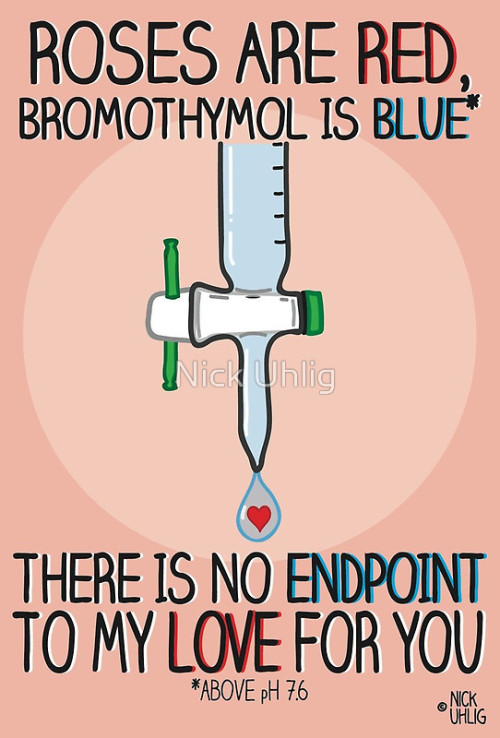
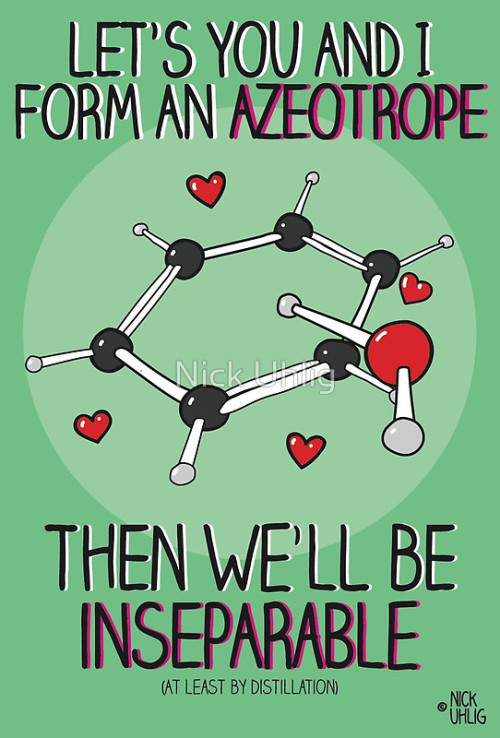
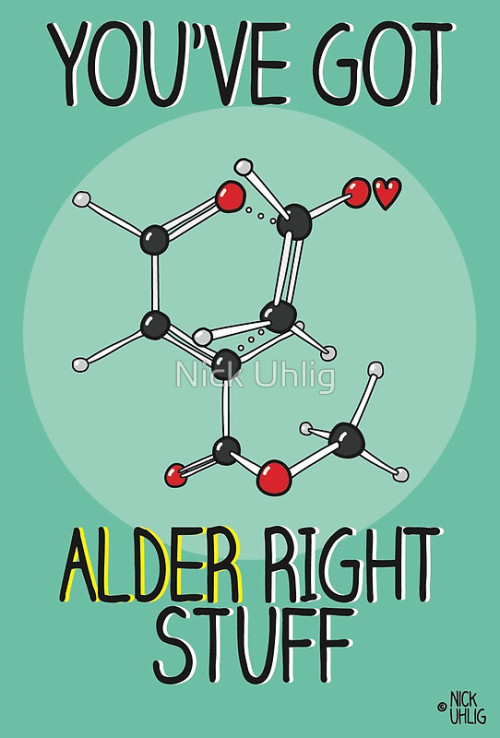
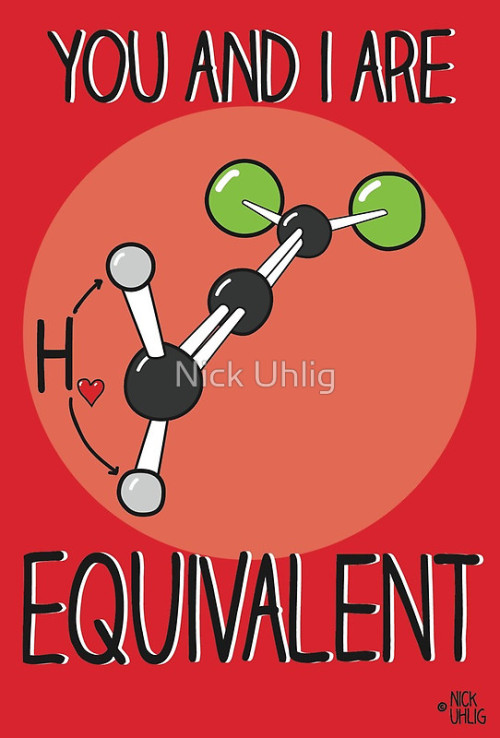
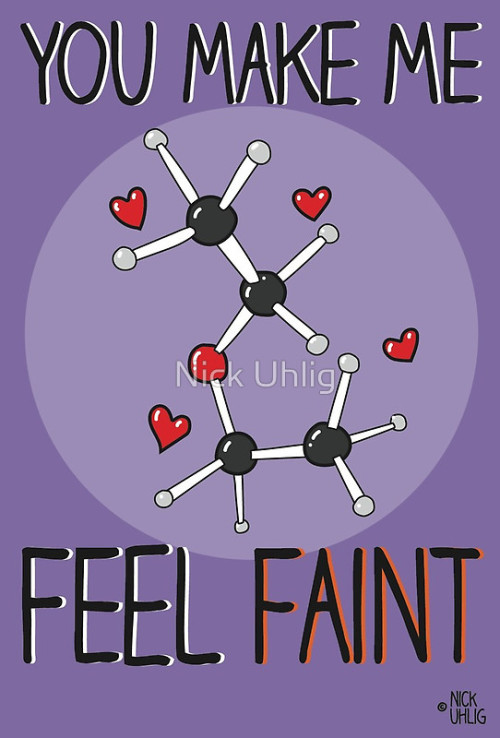
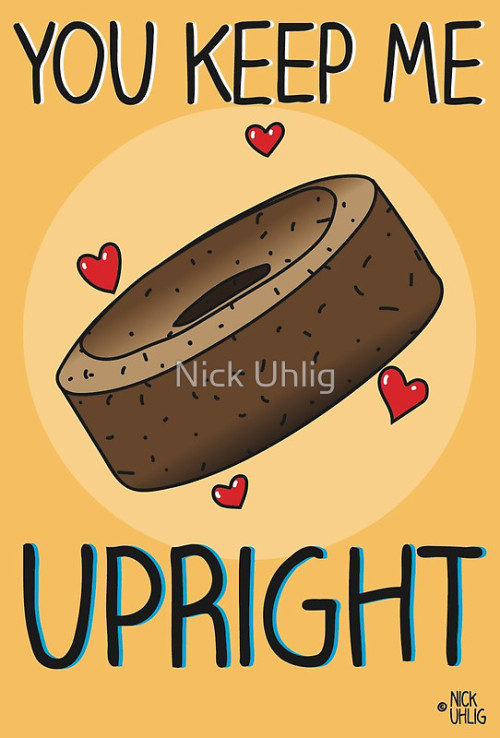
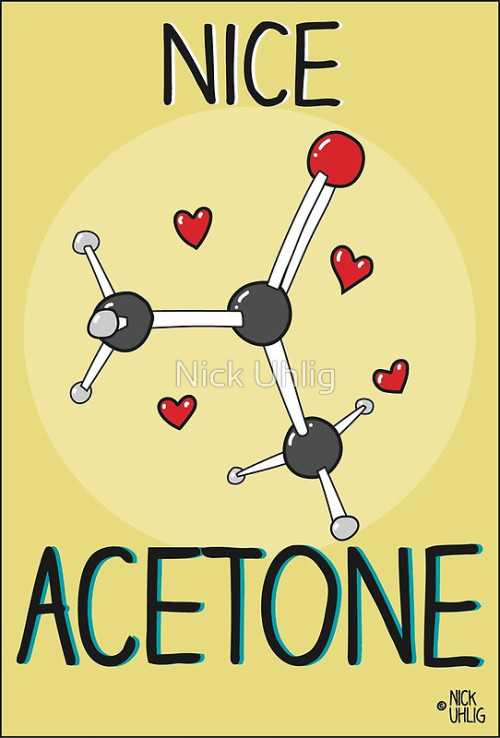
Chemistry Valentine’s Cards by Nick Uhlig.
-
 grysi liked this · 1 year ago
grysi liked this · 1 year ago -
 nuzah liked this · 2 years ago
nuzah liked this · 2 years ago -
 politebarracuda liked this · 3 years ago
politebarracuda liked this · 3 years ago -
 wakayume liked this · 3 years ago
wakayume liked this · 3 years ago -
 procrastinate-holmes liked this · 4 years ago
procrastinate-holmes liked this · 4 years ago -
 thcmoljac liked this · 5 years ago
thcmoljac liked this · 5 years ago -
 plumblossombee liked this · 5 years ago
plumblossombee liked this · 5 years ago -
 quickviewp-blog liked this · 5 years ago
quickviewp-blog liked this · 5 years ago -
 0ne-direction-imaginess liked this · 5 years ago
0ne-direction-imaginess liked this · 5 years ago -
 zanyeggartisanhoagie liked this · 5 years ago
zanyeggartisanhoagie liked this · 5 years ago -
 wertherweather86-blog liked this · 5 years ago
wertherweather86-blog liked this · 5 years ago -
 whobloidlostingublerland liked this · 6 years ago
whobloidlostingublerland liked this · 6 years ago -
 antiantemeridian liked this · 6 years ago
antiantemeridian liked this · 6 years ago -
 karniyarikseverim liked this · 6 years ago
karniyarikseverim liked this · 6 years ago -
 decadentpeachskeletonsludge-blog liked this · 6 years ago
decadentpeachskeletonsludge-blog liked this · 6 years ago -
 strawbxrina liked this · 6 years ago
strawbxrina liked this · 6 years ago -
 chemibo reblogged this · 6 years ago
chemibo reblogged this · 6 years ago -
 anttesis liked this · 6 years ago
anttesis liked this · 6 years ago -
 kikakikirika reblogged this · 6 years ago
kikakikirika reblogged this · 6 years ago -
 dozeysheep liked this · 6 years ago
dozeysheep liked this · 6 years ago -
 nichtsichtbar94 reblogged this · 7 years ago
nichtsichtbar94 reblogged this · 7 years ago -
 l4vinia-blog liked this · 7 years ago
l4vinia-blog liked this · 7 years ago -
 amaurylandia liked this · 7 years ago
amaurylandia liked this · 7 years ago -
 melconam liked this · 7 years ago
melconam liked this · 7 years ago -
 amarhastalosdefectos reblogged this · 7 years ago
amarhastalosdefectos reblogged this · 7 years ago -
 ash-moztaza reblogged this · 7 years ago
ash-moztaza reblogged this · 7 years ago -
 ash-moztaza liked this · 7 years ago
ash-moztaza liked this · 7 years ago -
 polyethenes liked this · 7 years ago
polyethenes liked this · 7 years ago -
 univcrsty-a-blog reblogged this · 7 years ago
univcrsty-a-blog reblogged this · 7 years ago -
 gladisyanez liked this · 7 years ago
gladisyanez liked this · 7 years ago -
 minnienonmini liked this · 7 years ago
minnienonmini liked this · 7 years ago -
 tthomusic liked this · 7 years ago
tthomusic liked this · 7 years ago -
 despaseato reblogged this · 7 years ago
despaseato reblogged this · 7 years ago -
 sixgrams liked this · 7 years ago
sixgrams liked this · 7 years ago -
 yazodov liked this · 7 years ago
yazodov liked this · 7 years ago
60 posts